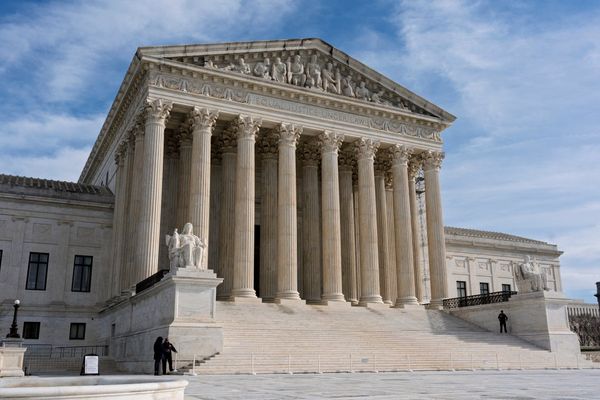JEFFERSON CITY, Mo. — The next month in the Missouri Capitol may represent one of the last gasps in the Republican fight against Obamacare.
Missouri, which has Republican supermajorities in the House and Senate, has been a holdout on joining other states in providing health insurance to more poor people.
And, even after 53% of Missouri voters said they wanted to expand the program in a statewide election last August, the House, which sent its version of the budget to the Senate on Thursday, has refused to provide the necessary funding.
For supporters of expansion, there is hope the more deliberative upper chamber will reverse course and side with voters, earmarking the necessary $128 million in state funding to give 275,000 more low-income Missourians health coverage.
Senate leaders, however, weren’t making any forecasts about the fate of the funding following the House budget action.
“I can’t predict what the Senate is going to do,” said GOP Senate President Dave Schatz. “We’re just going to have to wait and see.”
“It’s too early to tell,” added GOP Senate Majority Leader Caleb Rowden. “It’s the budget process. The House does stuff we like. The House does stuff we don’t like.”
The House’s action was another chapter in the Legislature’s decadelong rejection of President Barack Obama’s signature achievement, the Affordable Care Act.
Under the ACA, states pay no more than 10% of the cost of expanding Medicaid eligibility to households with incomes below 138% of the federal poverty guideline, or about $17,775 per year for a single person.
The state pays about 35% of the cost of the existing Medicaid program, but it has some of the most restrictive eligibility requirements in the nation.
Although Missouri Gov. Mike Parson campaigned against expansion, he proposed funding it when he unveiled his budget in January for the fiscal year beginning July 1.
On Thursday, he too said the budgeting process remains fluid.
“It’s early to speculate about that. We’ll just see what happens,” the governor said.
Parson put the cost at $120 million in state funds and $1.8 billion in federal assistance.
Since then, the federal government has made the pot sweeter, hoping to get more states on board. It will give Missouri as much as $1.5 billion over two years if it moves forward with expansion.
House Budget Committee Chairman Cody Smith, a Republican, however, was not swayed by either the August vote nor the federal incentives.
Smith said the ballot initiative expanded eligibility, but did not address the funding question. By not providing that money in the budget, he said, the new population of potential enrollees cannot receive coverage.
Smith said the state’s current Medicaid program already covers about one in six Missourians and takes up about 35% of the state spending.
“I want to be clear. We do a lot for a lot of people in this budget,” Smith said.
Other Republicans said adding more people to the MO HealthNet program would result in cuts to other programs.
The state’s current revenue outlook does not support that result.
Despite the pandemic and its effect on unemployment and business closings, Parson proposed a budget that anticipates $1.1 billion in surplus state funds.
In addition, the state is receiving about $2.8 billion in federal emergency stimulus money following passage of President Joe Biden’s American Rescue Plan Act.
Rep. Peter Merideth, a Democrat who is the ranking minority member of the budget panel, said he is counting on the Senate to restore the funding.
“I sure hope they are going to do it,” Merideth said. “They understand that we have the money to do it right now.”
Democratic House Minority Leader Crystal Quade said she’s received assurances from senators that the money will be there when Parson gets ready to sign the spending plan.
“They continue to say they intend to put it back in,” Quade said. “We’re hoping this is all academic.”
At least one Republican on the Senate Appropriations Committee said he wants to finance the expansion.
“This is pretty early in the process, so I’m sure Medicaid expansion will get considerable attention, not only in committee, but on the Senate floor,” said Sen. Lincoln Hough, a Republican. “It would be my intention that we put the money back in.”
Others are less sure.
Like Parson and other Republicans, Schatz was opposed to the August referendum.
“I was a strong advocate against Medicaid expansion. I think it’s a situation where it’s very costly to the state in the future,” Schatz said. “I would probably advocate we don’t fund it at this point.”
Members of the Senate’s Conservative Caucus also are ready to fight to keep the state’s more limited Medicaid eligibility levels.
“I’ve always been opposed to (Medicaid expansion) because I feel it’s a budget buster,” said GOP Sen. Cindy O’Laughlin.
Sen. Eric Burlison, a Republican, said it was “appropriate” for the House to remove the funding.
Burlison said proponents of Medicaid expansion “deceived voters by letting them believe it would cost nothing,” and that the measure was unconstitutional because it did not include a funding mechanism.
Burlison expects some senators will try to add the funding back in because hospitals and care facilities “will have a powerful lobby to try to push that through.”
Republicans control the Senate by a 24-10 majority, but the GOP caucus is not aligned on all issues.
Under one scenario, the Legislature could take no action on adding funding for the expansion while also taking no action on the new population of recipients signing up for the coverage.
Then, if costs rise higher than what is budgeted because of a surge in enrollees, the House and Senate could return to Jefferson City later in the fiscal year to debate whether to pay for any added costs.
Expansion advocates also could head to court to require the money be paid, based on the outcome of last year’s referendum.
The clock on the Legislature, the governor and opponents is ticking: The ballot initiative set the start date for the expansion at July 1. The budget is supposed to be sent to Parson in the first week of May.
Parson played down the rising tension in the Capitol during a news briefing Thursday.
“We’ll deal with that if it comes. We’ll have to see if the Senate votes like the House did. Then we have got to figure it out,” Parson said.
Smith still holds some cards. He has filed legislation that would funnel the state’s share of the expansion in other directions, including more money for mental health treatment and the state’s underfunded public defender system.
He’s also proposing to spend an additional $18 million on school transportation, which is tied to a plan to provide tax credits to fund scholarships at private schools.
Smith also earmarked $30 million for a one-time increase for nursing homes.
Although that could make for some interesting 11th-hour negotiations under the statehouse dome, the actions of expansion opponents did not assuage Democrats.
“We’re disrespecting the people in need of health care in our state,” Merideth said. “Denying people health care is not a Christian value.”
“I am angry and I am offended and I am disgusted over what has happened over the last week,” said Rep. LaDonna Appelbaum, a Democrat.







